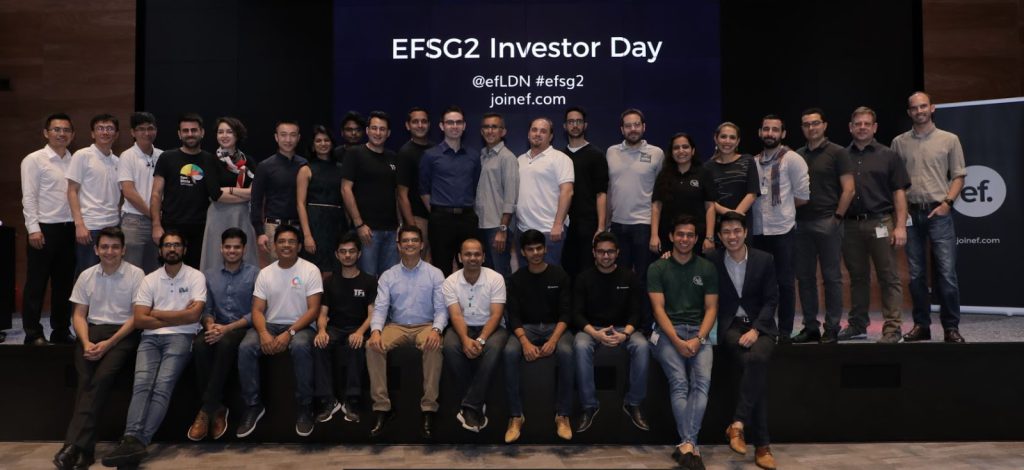Coined in 2014 by Indian investor and entrepreneur Swati Chaturvedi, the term “deep tech” refers to fundamental discoveries in science and engineering innovations that offer significant advances over existing technologies.
Typically, startups in the deep tech space tend to concentrate on transformative technologies such as artificial intelligence (AI), robotics, blockchain, biotechnology, and quantum computing, with the potential to reinvent the wheel across various industries.
Companies like Intel, Microsoft, and Apple can be seen as precursors to today’s deep tech startups — Intel pioneered the silicon revolution, Microsoft transformed the software industry, and Apple disrupted the smartphone industry. In recent years, companies like SpaceX, aiming for interplanetary colonisation, and DeepMind, are taking up the mantle by pushing the boundaries of AI.
Other than big names like SpaceX and DeepMind, many deep tech startups generally struggle when it comes to commercialising their innovations.
This is because they go through a different evolution cycle as compared to the typical B2B or B2C company — commercialisation generally tends to be more complex and founders are often presented with unique challenges along the way. But what makes this journey to success for deep tech startups so challenging?
A solution in search of a problem
Typically, the development of deep tech startups is deeply tied to the accumulation of research conducted at universities and research institutes. These ventures are usually spin-offs from universities, seeking to solve real-world problems and commercialise the institution’s novel technology or Intellectual Property (IP).
In stark contrast, most conventional startups identify pre-existing market problems and then craft solutions designed to seamlessly tackle these challenges. In other words, they possess a clear understanding of the problem they intend to resolve from the outset.
By taking an opposite approach, these deep tech entrepreneurs often suffer from SISP (a solution in search of a problem), a term coined by Y Combinator, as they zealously pursue the ideal problem that perfectly aligns with their cutting-edge solutions.
However, more often than not, founders attempt to shoehorn a problem into their solution, which can hinder a company’s growth prospects. That said, it’s not impossible for companies to grow this way, but it is an incredibly inefficient way to do so.

Take the invention of laser, for instance. When the tech was first invented back in the 1960s by Theodore Maiman, it was dubbed as “a solution in search of a problem”.
It wasn’t immediately obvious what a coherent source of light was really for — but after years of research, lasers now make up an integral part of various industries, from healthcare to manufacturing.
High risk, high returns
Even if a deep tech venture identifies a real-world problem that its IP can solve, taking these novel technologies from lab to market requires substantial capital to support their commercialisation — from building factories to support hardware-centric technologies and purchasing highly refined, expensive equipment and lab spaces to obtaining regulatory approvals, just to name a few.
Since most deep tech companies are built around a fundamentally new and unproven technology, they carry a higher risk as compared to average ventures. These innovations are most likely tested in a lab or research centre, and early results often do not provide a guarantee for scalability and success as these results are derived in a controlled environment.
Consequentially, many deep tech founders are likely to face challenges while building their products — the technology risk will not be eliminated until later in the process, increasing the possibility of the venture’s failure.

Cultivated meat startup Shiok Meats, which was once touted as one of Singapore’s rising food tech startups, faced similar issues.
In fact, its co-founder, Sandhya Sriram, admitted in a lengthy LinkedIn post that 90 per cent of the company’s experiments cultivating seafood end up failing as it struggled with scalability. Since its inception in 2018, the startup has yet to be able to successfully scale crustacean stem cells into production.
The complications and uncertainties that can arise in scientific R&D for these deep tech startups can also be a push factor for investors, causing them to be more wary about funding these ventures.
Consequently, a funding gap referred to as the “valley of death” arises, presenting a unique financial challenge for entrepreneurs between research invention and commercialisation.
However, if a deep tech startup can overcome the “valley of death”, it could deliver outsized returns over an average venture investment. Microsoft, Nvidia, and Google were all deep tech startups in the beginning — these companies required higher capital and carried higher risks, but today, they stand as prime examples of the remarkable success deep tech startups can achieve.
Singapore lacks venture building talents
In addition to these challenges, the availability of talent — both in terms of venture building and technical expertise — plays a pivotal role in the successful commercialisation of the novel technologies produced by deep tech startups.
Venture building talents can grow and propel a startup to success, while technical talents focus on the nitty-gritty, operating the behind-the-scenes and driving innovation in deep tech startups. These talents complement each other, ultimately leading a business to greater heights.
However, as the world faces a global talent shortfall, the scarcity of these talents is increasingly becoming a major pain point for deep tech startups across the globe. By 2030, there will be a global human talent shortage of more than 85 million people — if left unchecked, this talent shortage could result in about US$8.5 trillion in unrealised annual revenues.
This shortfall is especially pronounced in Singapore, given the city-state’s small population. In fact, Singapore is ranked as the third-most “talent-starved” country among 40 countries, with 84 per cent of the city-state’s companies reporting shortages.

Even for countries where talent shortages are not as apparent, scaling a deep tech startup is hard enough as it is. Take Stanford University, the top producer of startup founders, as an example.
At an MOU signing between Temasek, the National University of Singapore (NUS) and Nanyang Technological University (NTU), Professor Ho Teck Hua, the President of NTU, revealed that Stanford University has about 13,500 inventions and disclosures over a 50-year period.
Of the 13,500 inventions, only one in five generate money, and only one in 100 have a chance to generate a revenue of US$1 million or higher. As a whole, only three have managed to generate a revenue of more than US$100 million, and one of these startups is Google.
On the other hand, while Singapore has a vast number of innovations — with NTU and NUS having a combined amount of 4,000 inventions and disclosures — the city-state generally lacks venture building talent.
Imagine a professor like me. I don’t know how to [build] a venture, I want to be nerdy and techy. We [professors] are terrible at building ventures.
– Professor Ho Teck Hua, President of NTU

Back in November last year, talent investor Entrepreneur First (EF), which builds deep tech startups from scratch by matching aspiring entrepreneurs with each other, pulled out of Singapore after citing a lack of deep tech talent across the city-state.
According to Tech in Asia, an entrepreneur who was part of EF’s earlier batches said that the company was trying to get 50 to 100 participants in its 12th cohort, but by that time, it had already “exhausted all the good founders in a tiny country.”
Singapore’s efforts to bolster the deep tech ecosystem
Recognising the pain points of deep tech startups across the city-state, Singapore has continually invested in building its research and innovation ecosystem through a series of national R&D plans since the 1990s.
Back in 2016, the city-state launched SGInnovate to catalyse and attract funding for early-stage deep tech investments. Through SGInnovate, founders of deep tech startups can access a plethora of resources and tap into a a global pool of talents to bolster their startups.
Aside from this, under the S$25 billion Research, Innovation, and Enterprise (RIE) 2025 plan, Temasek will be pumping S$1 billion a year into funding the development of deep-tech innovation across a variety of domains.
To further accelerate the creation of deep tech startups from NUS and NTU’s pipeline of research, Temasek, NUS and NTU have also recently signed an MOU to jointly commit S$75 million in a pilot programme.

During a speech at the launch of the SGInnovate Deep Tech Talent Central earlier this year, DPM Heng Swee Keat shared that deep tech holds great promise in solving humanity’s biggest challenges and improving lives.
So far, Singapore’s commitment to deep tech has paid off, especially during the pandemic as the city-state was able to tap on its expertise in biomedical sciences to quickly develop diagnostic test kits.
The COVID-19 pandemic has reinforced our conviction in investing in innovation and deep tech. Deep tech will play an even bigger future role in addressing the many global challenges, including Disease X (the next big virus outbreak), climate change and ageing.
– DPM Heng Swee Keat
As we look ahead, it is clear that Singapore’s continued investment in innovation and deep tech will be pivotal in addressing future global challenges. With its commitment to fostering talent and pioneering solutions, Singapore stands poised to lead the way in shaping a brighter and more technologically advanced future for us all.
Featured Image Credit: Shutterstock








